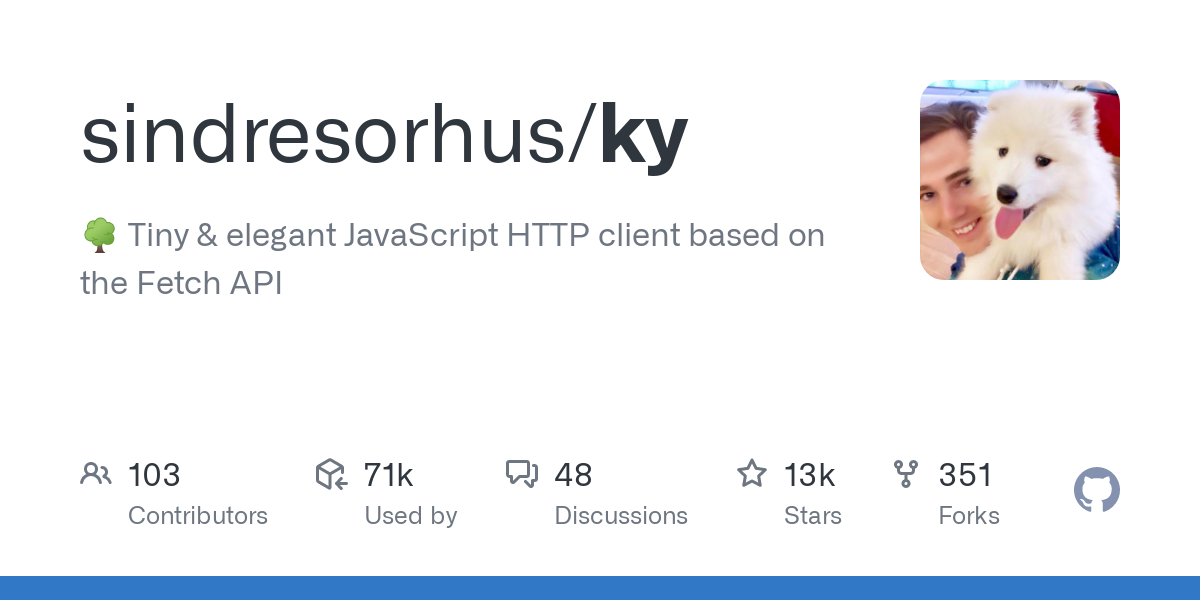Web developers are always on the lookout for efficient and concise HTTP request libraries. If you’ve used the `fetch` API before, you might want to consider `Ky`, a similar yet more straightforward and powerful library. Ky is a small, elegant Fetch API-based HTTP client available for modern browsers, Node.js, Bun, and Deno. This article will explain why `Ky` is superior to `fetch` and why you should consider using it.
1. Increased Productivity with Simple API
One of Ky’s biggest strengths is its simple API. Tasks that may have felt cumbersome with `fetch` are much more straightforward with Ky. For example, you can easily send a POST request using shortcut methods like `ky.post()`.
With `fetch`, sending a POST request requires code like the following:
const response = await fetch('https://example.com', {
method: 'POST',
body: JSON.stringify({foo: true}),
headers: {
'content-type': 'application/json'
}
});However, with Ky, you can achieve the same request with simpler code:
const json = await ky.post('https://example.com', {json: {foo: true}}).json();This concise code improves development speed and enhances code readability.
2. Automated Error Handling and Retry Mechanism
Ky automatically treats status codes outside the 2xx range as errors, allowing you to handle HTTP request results more safely. Additionally, Ky offers an automatic retry feature that retries a request if it fails due to network issues or server problems, up to a certain number of attempts.
3. JSON Options and Timeout Support
When working with JSON data, Ky provides dedicated options that make it easier for developers to handle JSON in requests and responses. Ky also supports timeout functionality, automatically canceling a request if no response is received within a specified time frame.
4. URL Prefix Option and Custom Default Instances
In projects with multiple API endpoints, Ky offers a URL Prefix option that automatically prefixes specific URLs, reducing code redundancy and allowing for more intuitive code. Additionally, Ky allows the creation of custom default instances with default values, enabling you to tailor the HTTP client to the specific needs of your project.
5. Benefits of TypeScript
For TypeScript developers, Ky’s TypeScript-friendly features will also be appealing. Ky designates the data type returned by the `.json()` method as `unknown`, ensuring type safety. You can also use generics like `.json<T>()` to specify the exact data type.
Conclusion
Ky is an HTTP client that combines simplicity and power, making it an attractive alternative for developers familiar with the `fetch` API. By using Ky, you can significantly enhance your development experience with its concise code, ease of error handling, and various features. If you haven’t tried Ky yet, start now for a better development experience.
References: GitHub, “Ky Library”
